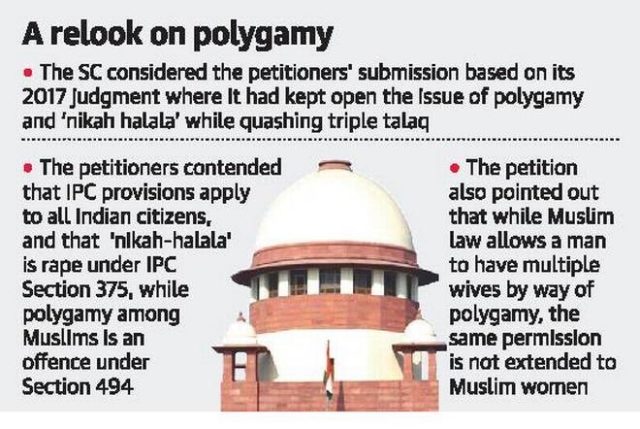PREVIOUS
Constitutional Validity of Polygamy and Nikah-Halala
April 4 , 2018
2582 days
1427
0
- The Supreme Court has agreed to examine the constitutional validity of the prevalent practices of polygamy and ‘nikah halala’ among Muslims and sought responses from the Centre and the Law Commission.
- Seven months after declaring triple talaq unconstitutional, the SC has decided to set up a Constitution bench to rule on the Muslim practices of polygamy and nikah halala.
- A PIL has been filed in the Supreme Court challenging the constitutional validity of practice of polygamy and Nikah-Halala under Muslim Personal law.
- The PIL claims that the provisions of Muslim Personal Law (Shariat) Application Act, 1937 in so far as it recognizes and validates the “sinful form” of Nikah-Halala and polygamy.
- It grossly injures the fundamental rights of married Muslim women and offends Article 14 (Right to Equality), Article 15 (Prohibition of discrimination on grounds of religion, race, caste, sex or place of birth) and Article 21 (Right to Life) of the Constitution of India for being against public order, morality and health.


Polygamy and Nikah-Halala
- A Muslim husband is allowed to have more than one wife.
- Under Nikah-Halala, if a Muslim woman after being divorced by her husband three times at different instances wants to go back to him, then she has to marry another person and then divorce the second husband to get re-married to her first husband.
Leave a Reply
Your Comment is awaiting moderation.


